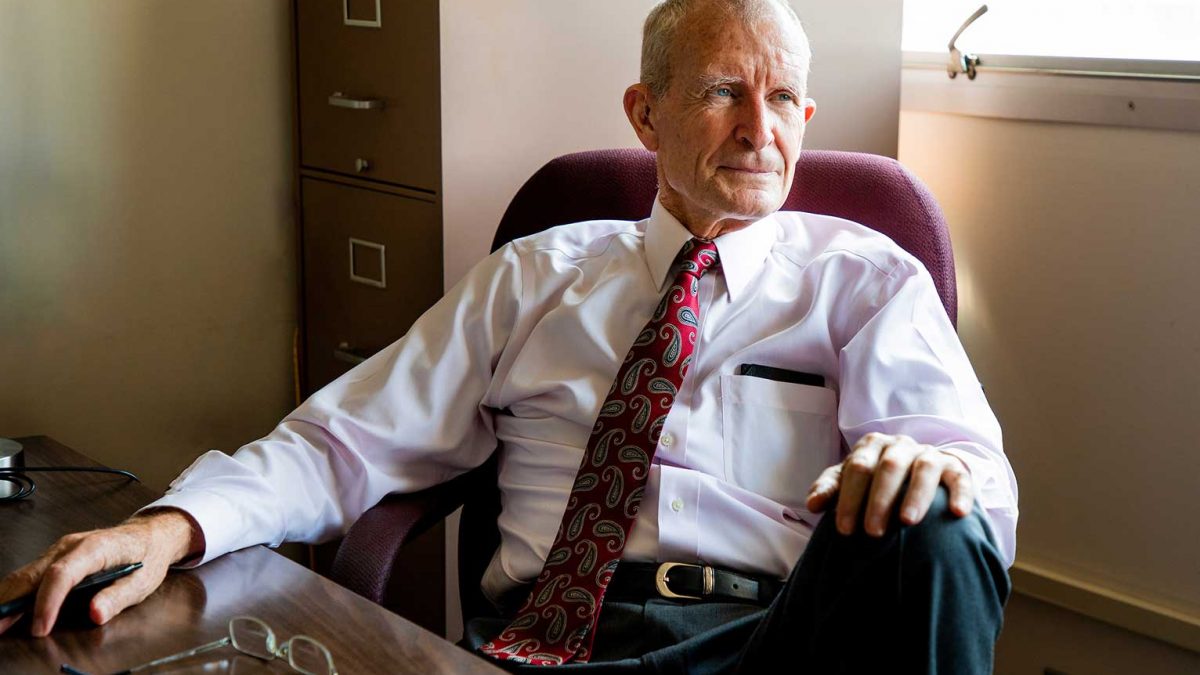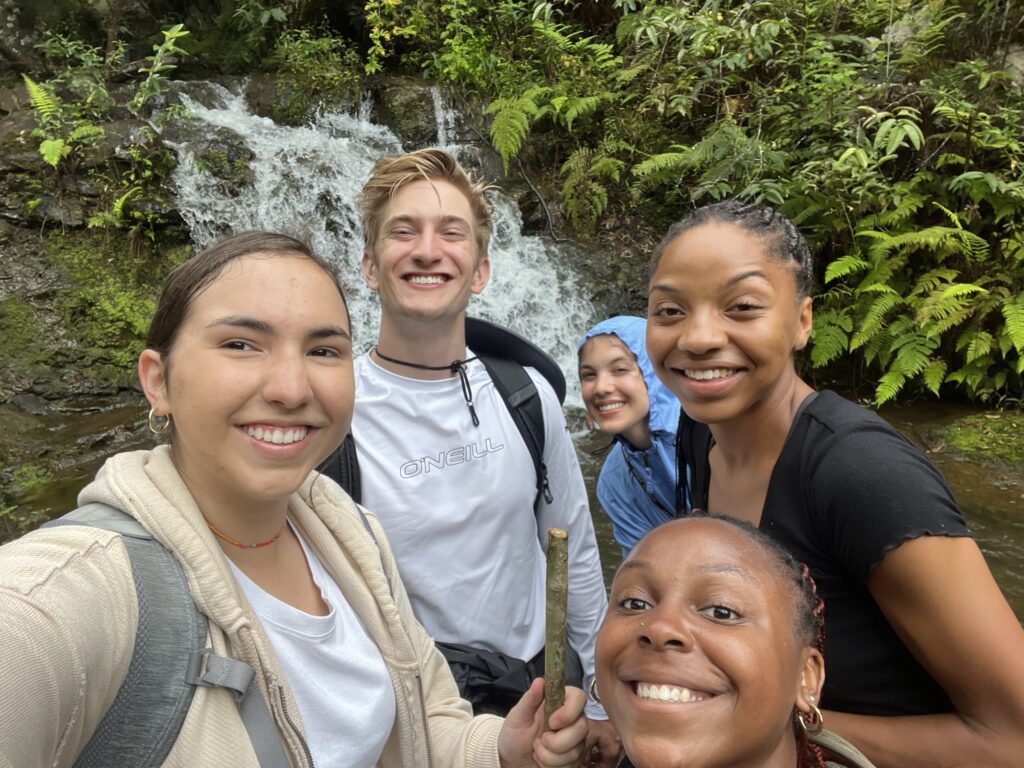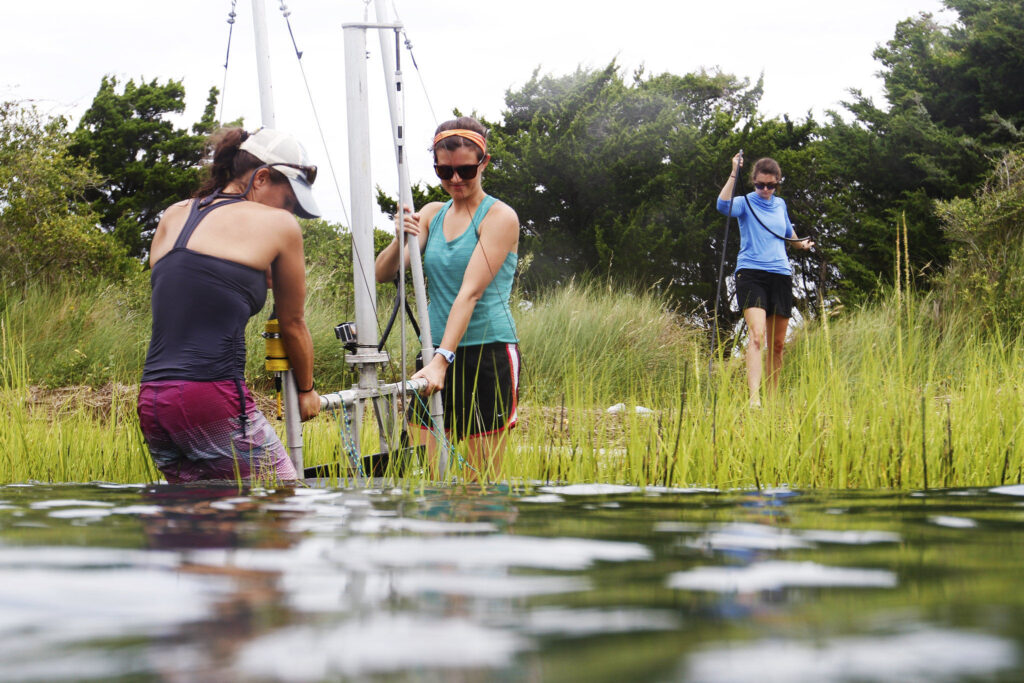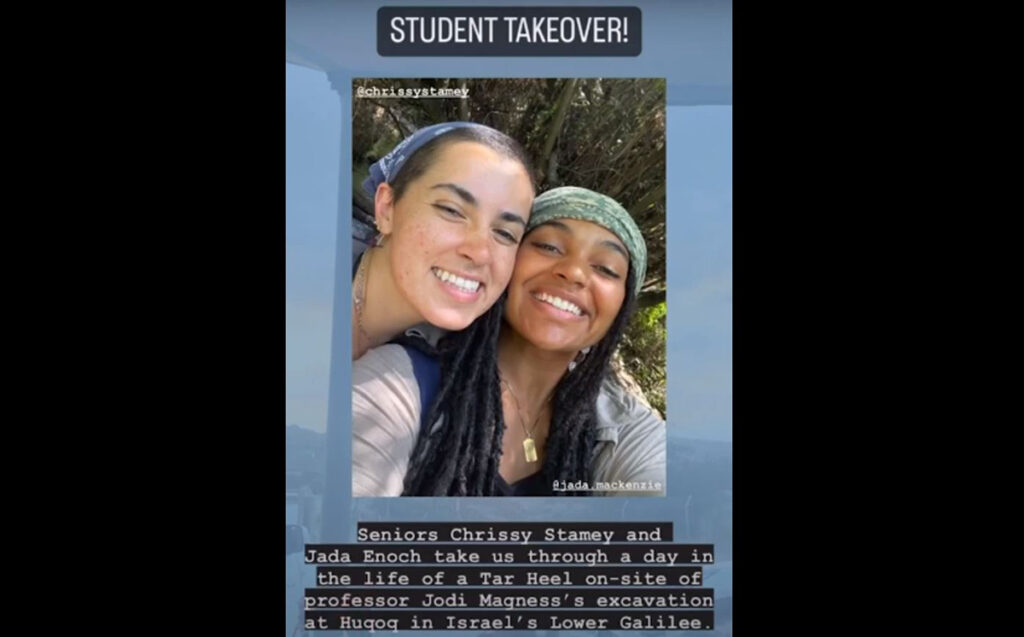Leader in National Intelligence Joins Faculty as Inaugural Knott Distinguished Visiting Professor
May 16, 2023

Retired Admiral Dennis Blair, a 34-year Navy veteran who was President Barack Obama’s first director of national intelligence, is the University’s first Knott Distinguished Visiting Professor of the Practice in the peace, war and defense curriculum in the College of Arts and Sciences.
In 2019, Admiral Dennis Blair — former United States Director of National Intelligence and leader of 16 national intelligence agencies — joined Carolina’s Peace, War and Defense curriculum faculty as the first David M. and Virginia C. Knott Distinguished Visiting Professor of the Practice. The Knott Professorship was endowed with a gift from Virginia C. Knott ’72 and her late husband, David M. Knott, parents to Virginia K. Knott ’09 and David M. Knott Jr. ’08, an Arts and Sciences Foundation board member.
Founded in 1970, the Peace, War and Defense curriculum, housed in the College of Arts and Sciences, remains one of a kind. The War Studies Department at King’s College London is its closest equivalent in the English-speaking world.
Blair brings to Carolina 34 years of experience in the U.S. Navy; when he retired he was Commander and Chief, U.S. Pacific Command. After retirement, he was president and CEO of the Institute for Defense Analyses, then Director of National Intelligence. He served in high-level administrative positions under five presidents: Ford, Reagan, Clinton, G.W. Bush, Obama.
A graduate of the U.S. Naval Academy, Blair attended Oxford University as a Rhodes Scholar, along with the late Darryl Gless, renowned professor of Renaissance literature at UNC-Chapel Hill — Blair’s first connection to Carolina.
“Darryl was always trying to get me down to Chapel Hill to teach or lecture,” Blair recalled. “Now, I’m doing it. It’s time to pass on some of the things I’ve learned to coming generations.”
In his first-year seminar, “September 11: Origins, Consequences, and Where We Go from Here,” Blair finds himself teaching a generation of students “who were barely born or not even born at the time of the most significant event affecting our national security in the past 20 years.
“It is interesting to see 9/11 through the eyes of those who don’t have a personal memory of it,” noted Blair. “It gives me some perspective, to see how much of our reactions as adults have reached the next generation.”
The course explores how the terrorist attacks occurred and why the U.S. intelligence community and policymakers failed to prevent them, the effect on American government and politics, American reactions at home and abroad, and the aftermath of the attacks in the Middle East and the world.
“We’re trying to teach them that, in dealing with the threat of terrorists, like all difficult problems, the choices are not black and white, and the United States needs to find a way to strike a balance between freedom and security.”



